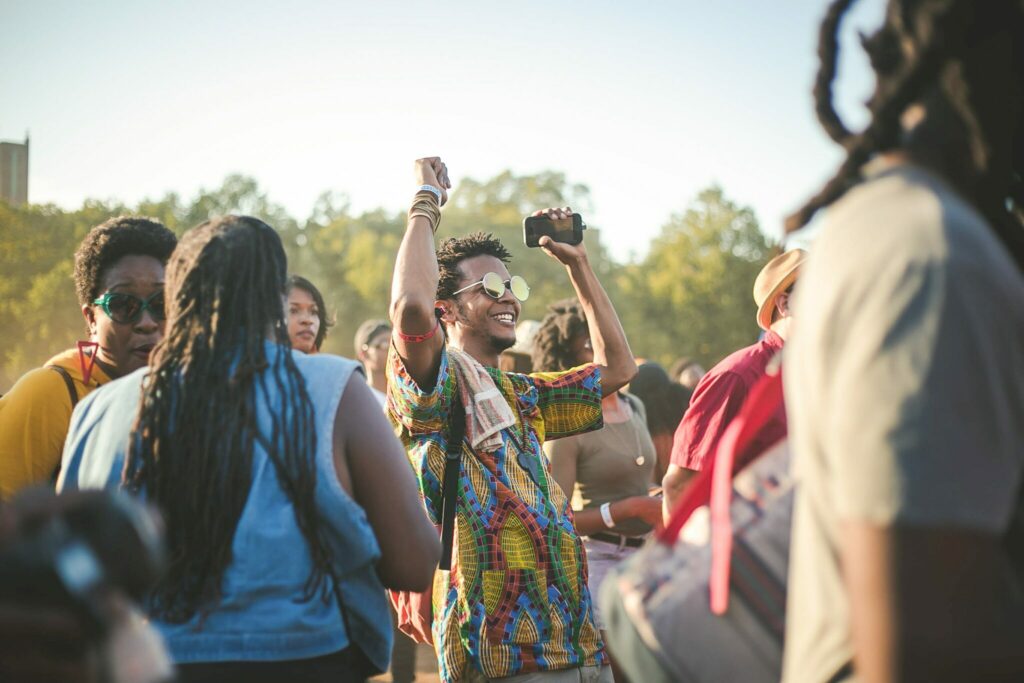Juneteenth may be over for white America, but it is not over for me. Today is July 1st. On the heels of Juneteenth, America pats itself on the back for recognizing the holiday that celebrates the “freedom” of Black America and turns its attention to celebrating the “real” day of American freedom, July 4th, 1776.
Growing up, I watched my white counterparts celebrate their “freedom” on July 4th with fireworks and BBQs, but I wondered what the holiday meant for me. Knowing that in America’s Constitution I had been labeled as three-fifths of a man. Knowing that my Indigenous community members were robbed of their land and completely disenfranchised. Knowing that the work of my ancestors built this country through trillions of dollars worth of unpaid labor that still goes unacknowledged in our current history.
Juneteenth marks the day when federal troops went to Galveston, Texas, and communicated to remaining enslaved peoples that they were free as a result of the signing of the Emancipation Proclamation. The Emancipation Proclamation was signed September 22, 1862, and enacted Jan. 1, 1863. It took almost two and a half years to communicate to all enslaved Black people that they were free.
But this event didn’t even begin to address the challenges of reconstruction and the subsequent persecution of Black people in this country that followed enslaved individuals gaining freedom.
With the first year of Juneteenth’s status as a federal holiday is just behind us, it’s important to recognize Juneteenth as a significant part of Black history and culture AND to also recognize that Black Americans need more than symbolic social change. We need substance over symbolism.
Juneteenth Matters
Often the brightest aspects of Black culture are born out of our hardships. Juneteenth embodies this culture. It’s a celebration of freedom, sure, but it’s also a celebration of a freedom that never should have had to be given in the first place. A freedom denied for centuries. A freedom that when finally won, still took years to communicate to enslaved people.
It was an infrastructural failure on all accounts by the Union. And it also highlights how critical it is for Black people to create, support, and cultivate Black channels of communication through Black media, Black literature, and other Black mediums. We cannot rely on white America to communicate our culture and to serve our best interests.
Even the embracing of Juneteenth as a federal holiday is emblematic of that. We get whitewashed history and corporate pandering rather than real change or acknowledgment of the holiday’s complex history.
I learned about Juneteenth when I was 12 years old, but I had no outlet to celebrate the holiday or dig deeper into why or how this day was important to me. In 2021, we saw no shortage in celebrations and acknowledgments of Juneteenth.
From BBQs to Black Bike Rides, the recognition of Juneteenth was beyond inspiring. The capacity to be Black and embrace our Blackness with a holiday like Juneteenth has never been more widely accepted. This was the first year I found myself partaking in multiple Juneteenth events. That matters.
But We Need Substance Over Symbolism
Representation matters. Whether it’s in how you see yourself and your ancestors depicted in history or in how you see yourself depicted on Netflix and HBO.
What our white counterparts often don’t understand is that their culture has a ubiquitous influence on all things. That influence combined with rose-tinted glasses are all too often used to portray our history. This leads to a narrative that doesn’t tell our stories or value our voices. You can see this in companies like Nike, Twitter and the NFL making Juneteenth a paid holiday for its workers, while those same companies marginalize their BIPOC workers and are dominated by nearly all-white boards, or an IKEA in Atlanta creating a Juneteenth menu featuring watermelon and fried chicken.
And that ubiquitous whiteness has led to me and many of my peers not knowing how to celebrate and appreciate our own history in our own way.
Let’s face it. Lawmakers push through policies like making Juneteenth a holiday because they have very low stakes and great optics. Yet state legislatures across the country ignore the limitations of voting rights, suppress critical race theory in our schools, and reject comprehensive police accountability legislation. We have to hold lawmakers accountable and ensure that our policies are not just PR opportunities.
As we continue to move the work forward, I reflect on the need to stay vigilant. One of the reasons I started S.D.M. Consulting is because of the feeling of helplessness I’ve felt over the years after countless high-profile police murders ended without any accountability on the officers. James Baldwin said, “To be a Negro in this country and to be relatively conscious is to be in a rage almost all the time.” Lobbying and legislative advocacy gives me a platform to actively use my anger to promote change for the underrepresented and underserved communities I’m part of.
So as we move forward and continue the fight I’m reminded that we’ve come a long way. While some aim to suppress Black History, that is only because it has elevated to the top of social discourse. All the more reason for Black people to remain unrelenting in our pursuit of justice. We should also maintain our Blackity Blackness at all costs. Thank you to Black culture for providing someone like me an outlet to celebrate.

